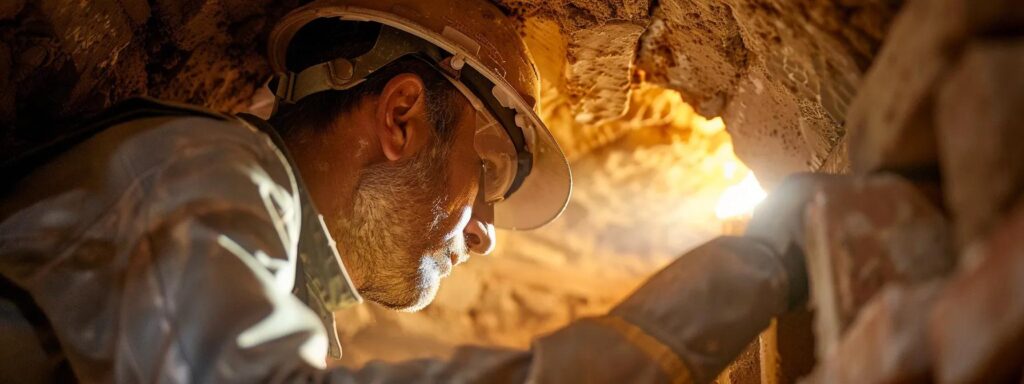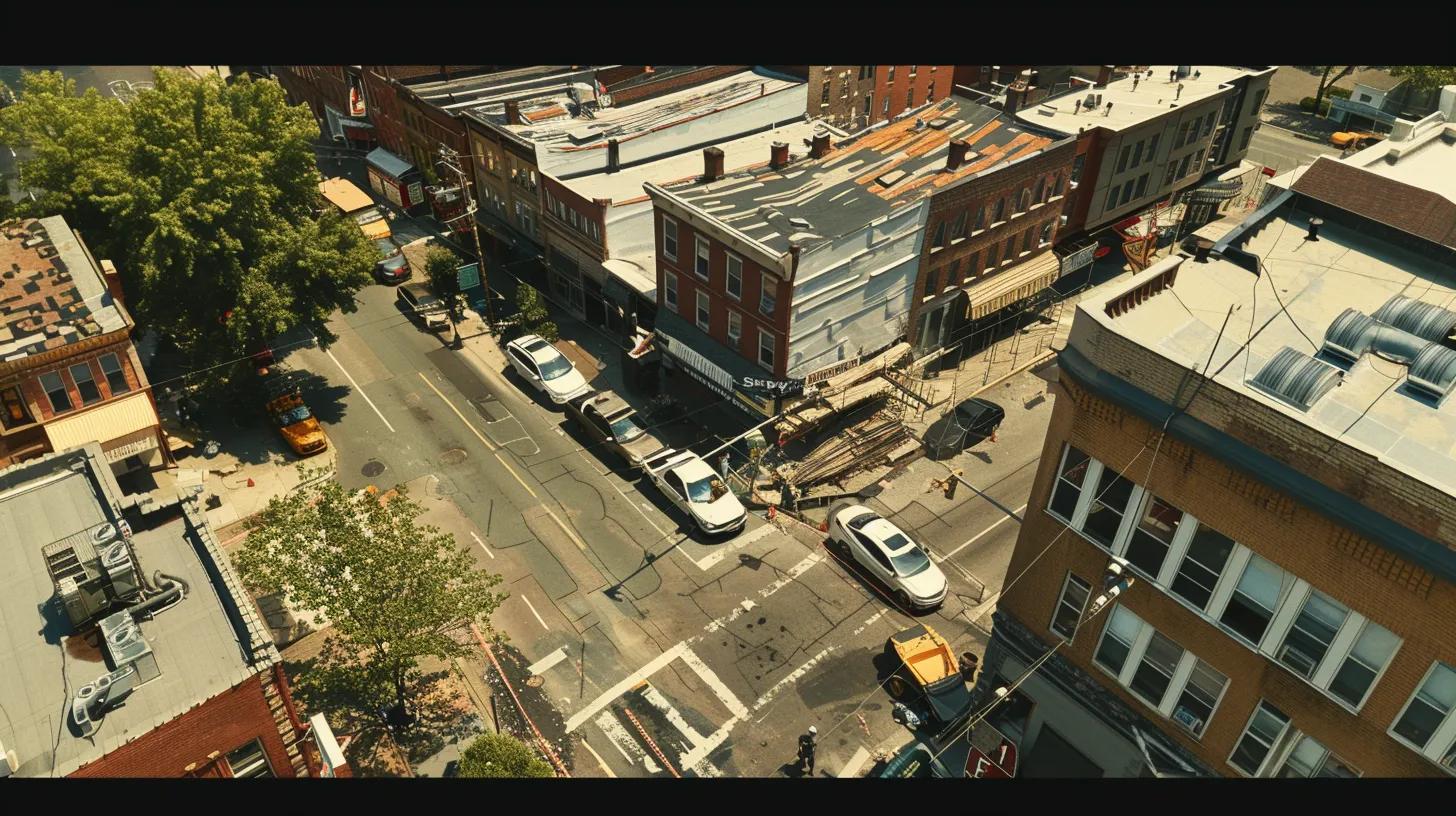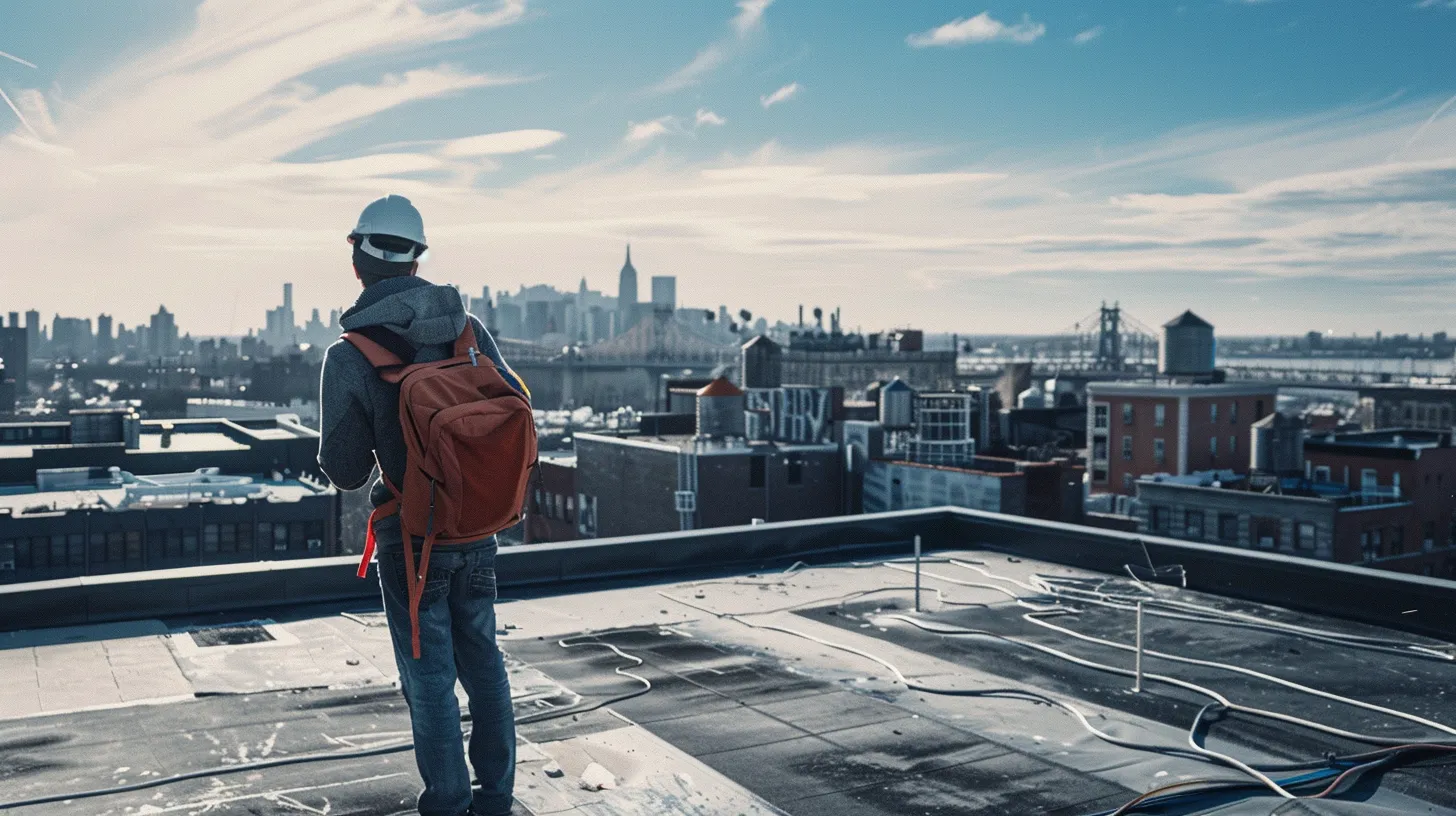Chimney inspections are essential for maintaining safety and efficiency in your home. Many homeowners overlook the importance of regular checks, which can lead to hazards such as chimney fires or carbon monoxide leaks. This article will discuss the benefits of chimney inspections, the types of services available in New Jersey, and what to expect during an inspection. By understanding these aspects, readers will gain valuable insights into how MyWay Construction NJ can enhance their home’s safety while addressing potential issues with chimney and gutter services. Engaging with this content will help homeowners make informed decisions about their chimney needs.
Understanding Chimney Inspection Services in New Jersey
Chimney inspection services in New Jersey encompass a thorough evaluation of chimney components, including the chimney liner and flue. myway construction nj also provides gutter services and skylight services to ensure comprehensive home maintenance. Regular inspections ensure that these vital parts are functioning correctly and meet safety standards set by the National Fire Protection Association.
During an inspection, a trained professional examines the chimney for signs of damage or blockage, including the accumulation of debris. This debris can significantly affect the airflow and efficiency of the chimney, potentially leading to hazardous situations such as chimney fires or toxic gas buildup.
In New Jersey, homeowners should prioritize routine chimney inspections to prevent issues that could escalate into costly repairs. A well-maintained chimney not only enhances the safety of the home but also ensures optimal performance for heating systems using the chimney.
The inspection process typically involves visual assessments as well as advanced tools for a more comprehensive evaluation. Professionals will check the integrity of the flue, inspect the chimney liner for any cracks, and confirm that all components comply with local codes and standards.
By adhering to the guidelines established by the National Fire Protection Association, homeowners can ensure their chimneys are safe and effective. Regular inspections are an essential part of home maintenance in New Jersey, promoting safety and extending the life of the chimney system.
Regular chimney inspections are not just routine checks; they are vital for safety. Understanding their benefits can save homeowners from unexpected issues down the line.
The Benefits of Regular Chimney Inspections
Regular chimney inspections provide homeowners peace of mind by identifying potential hazards early. A qualified chimney sweep examines the system thoroughly, ensuring that issues are detected before they become serious and costly chimney repairs.
By keeping up with inspections, homeowners can maintain a safer hearth environment. Routine evaluations help prevent dangerous situations such as chimney fires or the release of toxic gases, which could ultimately endanger family members.
Frequent inspections can also prolong the lifespan of the chimney. Addressing minor issues promptly can help avoid more extensive chimney repair work in the future, saving both time and money for homeowners.
Maintaining a clean and well-functioning chimney enhances the overall efficiency of heating systems. Inspections ensure that the chimney operates correctly, allowing for optimal airflow and reducing energy costs in the long run.
Homeowners in New Jersey should prioritize chimney inspections as part of their regular maintenance routine. Establishing this practice not only protects the home but also supports the longevity of the chimney system and contributes to a safe living environment.
Inspections come in different forms, each offering unique insights into your chimney‘s health. Understanding these services can help you choose the right option for your home.
Types of Chimney Inspection Services Available in New Jersey
Chimney inspection services in New Jersey often include a thorough examination of the chimney system, focusing on critical components such as the flue and chimney liner. Inspectors assess the integrity of flashing to prevent water intrusion that could lead to structural damage. This careful evaluation helps ensure safe operation, reducing the risk of a chimney fire.
Another essential aspect of chimney inspections is checking the pilot light in gas appliances. A malfunctioning pilot light can indicate issues within the chimney system, potentially creating unsafe conditions, including the buildup of harmful gases. Proper inspections and maintenance ensure that appliances operate efficiently and safely.
In addition to traditional chimney inspections, some services include dryer vent cleaning. This is vital as lint buildup in vents poses a significant fire hazard. Regular cleaning not only promotes safety but also enhances the efficiency of the dryer, extending its lifespan.
For households utilizing oil heating, specific chimney inspections are necessary. These inspections focus on the oil venting system, ensuring that it complies with safety standards and operates correctly. Failure to maintain these systems can lead to costly repairs or unsafe conditions.
Overall, various types of chimney inspection services in New Jersey address the unique needs of each home. By engaging professional services, homeowners can ensure the safety and efficiency of their chimney systems, minimizing risks and maintaining optimal performance.
Chimney inspections are crucial for safety and maintenance. Understanding what to expect during your inspection will help ensure everything goes smoothly.
What to Expect During a Chimney Inspection
During a chimney inspection in New Jersey, a professional evaluates the entire chimney structure, including masonry and brick components. The inspector looks for cracks, signs of wear, or any potential hazards that may compromise the chimney‘s integrity.
Inspectors pay close attention to the chimney liner, as its condition is critical for safe operation. If the inspection reveals damage, the technician will recommend necessary actions to repair the chimney liner to prevent hazardous situations.
Customer service is a priority during inspections, with professionals ensuring homeowners understand each step of the process. Clear communication about findings and recommended maintenance helps homeowners make informed decisions regarding their chimney systems.
Utilizing specialized tools, inspectors perform a comprehensive assessment of airflow and venting to identify any blockages or inefficiencies. This thorough examination ensures that the chimney operates as intended, enhancing both safety and function.
Understanding what happens during a chimney inspection is just the beginning. Knowing how to select the right service can make all the difference for your home.
How to Choose the Right Chimney Inspection Service
Choosing the right chimney inspection service in New Jersey requires thorough research to ensure quality and reliability. Homeowners should seek professionals experienced in identifying issues such as water damage, which can compromise chimney structure and integrity.
It is essential to verify the credentials and certifications of chimney inspectors. Qualified professionals will be knowledgeable about combustion efficiency and familiar with relevant safety standards, ensuring that the chimney operates safely and efficiently.
Homeowners should inquire about the inspection process, including how professionals will clean soot buildup and assess critical components like chimney flashing. The ability to repair chimney flashing is crucial for preventing water intrusion that could lead to further damage.
Customer reviews can provide valuable insights into the service’s quality. Positive feedback often indicates that the company supports homeowners throughout the home inspection process and offers thorough, transparent evaluations.
Lastly, consider the range of services provided, such as regular maintenance and emergency repairs. A comprehensive chimney inspection service will address all aspects of chimney health, ensuring optimal performance and safety for the home.
Understanding the right service is only part of the journey. Next, it is vital to grasp how local regulations shape chimney inspections in New Jersey.
Key Local Regulations Affecting Chimney Inspections in New Jersey
Understanding local regulations is essential for homeowners to ensure compliance during chimney inspections in New Jersey. This includes navigating homeowner responsibilities, aware of the certifications and standards required for chimney inspectors, and recognizing environmental considerations, such as carbon leak management from boilers. Each of these areas impacts the safety and efficiency of chimney systems, highlighting the importance of proper inspections.
Navigating Homeowner Responsibilities
Navigating homeowner responsibilities in New Jersey regarding chimney inspections involves understanding the need for regular assessments. Homeowners must ensure that the chimney, including the fireplace and any connected appliances like the furnace, is inspected by a qualified inspector at least once a year. Compliance with local regulations not only promotes safety but also protects the home from potential fire hazards associated with debris buildup or venting issues.
In addition, homeowners are responsible for maintaining a clear area around the chimney to prevent any obstructions, such as wood piles or nests, which could impede airflow. Taking proactive steps to keep the surrounding spaces clear can enhance chimney performance and safety. By doing so, homeowners demonstrate their commitment to ensuring a safe and functional home environment.
Understanding the implications of local regulations is essential for homeowners. Failure to adhere to inspection requirements can lead to increased risks of chimney fires and other hazards, creating liability concerns. Thus, engaging in regular inspections and maintenance, directed by an efficient inspection process, reinforces homeowner responsibility and supports the overall longevity of the chimney system.
Certifications and Standards for Chimney Inspectors
Certifications and standards for chimney inspectors in New Jersey play a crucial role in ensuring safety and maintaining high-quality service. Professionals in this field should hold certifications from recognized organizations, such as the National Fireplace Institute (NFI) or the Chimney Safety Institute of America (CSIA). These credentials exhibit their commitment to comprehensive training in chimney care, including inspections that address mortar integrity and assess the safe operation of systems like pellet stoves.
Homeowners benefit from hiring certified chimney inspectors who pride themselves on their expertise. These professionals follow local building codes and safety regulations, focusing on identifying potential hazards before they escalate into significant problems. By ensuring that inspectors are knowledgeable about the latest safety protocols, property owners can trust that their chimney systems, including any related roofing components, will receive the thorough evaluations they need.
Understanding the importance of certifications helps homeowners make informed choices when selecting chimney inspection services. An inspector’s qualifications not only indicate their level of expertise but also assure clients that safety remains a top priority throughout the inspection process. This commitment to professionalism fosters an environment where homeowners can confidently maintain their chimney systems, ensuring optimal performance and longevity in their residences.
Environmental Considerations in Chimney Inspections
Environmental considerations play a significant role in chimney inspections, particularly concerning creosote buildup. Creosote is a byproduct of burning wood that can accumulate in the flue over time, increasing the risk of chimney fires. Regular inspections help identify and address creosote accumulation, enabling homeowners to take action before it becomes a hazardous situation.
Another critical environmental concern relates to carbon monoxide emissions. If a chimney is blocked or damaged, it can allow carbon monoxide to seep into the home, posing serious health risks. A thorough inspection evaluates the ventilation system, ensuring that appliances such as stoves are venting properly and reducing the potential for carbon monoxide exposure.
Homeowners should also be aware of the necessity for chimney cap repair. A well-maintained chimney cap prevents debris, rainwater, and animals from entering the chimney, protecting the internal structure from deterioration. This preventative measure reduces the need for extensive repair chimney services and contributes to the overall efficiency of the chimney system.
As the rules of chimney inspections shape safety, many questions linger. Next, explore the common queries that homeowners ask about these vital checks.
Frequently Asked Questions About Chimney Inspections
Frequently Asked Questions About Chimney Inspections
This section addresses common questions related to chimney inspections in New Jersey. Homeowners will learn about key indicators that suggest a chimney inspection is necessary, recommended frequency for scheduling inspections, and the typical costs associated with these services. Understanding these aspects helps ensure safety and optimal functionality of chimney systems.
Common Signs Indicating You Need a Chimney Inspection
Homeowners should be vigilant for certain signs that indicate a chimney inspection is necessary. For example, if there is a visible buildup of soot or creosote, it is crucial to schedule an inspection promptly. Neglecting this buildup can lead to chimney fires, making it essential to address such issues without delay.
Another key indicator of potential problems includes unusual odors or smoke escaping back into the living space. This can signify blockages or damage within the chimney, which may pose serious health risks due to the accumulation of harmful gases. Addressing these symptoms with a professional inspection can significantly improve safety and performance.
Additionally, any noticeable cracks or crumbling in the chimney structure should not be ignored. These physical signs often point to underlying issues that can affect the chimney‘s integrity and overall functionality. Homeowners experiencing these problems should prioritize a thorough evaluation to prevent costly repairs and maintain a safe home environment.
How Often Should You Schedule an Inspection?
Homeowners in New Jersey should schedule a chimney inspection at least once a year to ensure safety and optimal functioning. This regular assessment allows professionals to identify any potential issues early, preventing minor problems from escalating into costly repairs. Seasonal changes, particularly after the winter months, can significantly impact chimney integrity, making annual inspections critical.
For households that use their chimneys frequently, such as those with fireplaces or wood-burning stoves, more frequent inspections may be advisable. In such cases, homeowners might consider scheduling inspections twice a year, especially if they notice signs of wear or are experiencing issues like increased smoke or odors during use. This proactive approach helps maintain safety and enhances the overall efficiency of the chimney system.
Families with unique situations, such as older homes or those surrounded by trees, should assess their specific needs for chimney inspections. Increased debris accumulation from nearby trees can lead to blockages, making it essential to incorporate more frequent evaluations. By prioritizing regular chimney inspections, homeowners can ensure a safe and well-functioning system, thereby safeguarding their property and loved ones.
Costs Involved in Chimney Inspection Services
The costs involved in chimney inspection services in New Jersey can vary based on several factors, including the type of inspection, the complexity of the chimney system, and the region’s pricing trends. Typically, homeowners can expect to pay anywhere from $100 to $300 for a standard inspection. This fee often reflects the experience and qualifications of the inspector and the quality of the service provided.
Specialized services, such as those that involve cleaning and repairs, may incur additional charges. For example, if a technician identifies creosote buildup or structural damage, the costs for prompt remediation can significantly increase. Homeowners should consider these potential additional expenses when budgeting for their chimney maintenance.
Conclusion
Chimney inspection services in New Jersey are crucial for maintaining the safety and efficiency of homes. Regular evaluations help identify potential hazards, such as creosote buildup and structural damage, preventing costly repairs and dangerous situations. Homeowners should prioritize annual inspections to ensure compliance with local regulations and enhance the performance of their heating systems. By investing in professional chimney services, residents can protect their property and ensure a safe living environment for their families.




